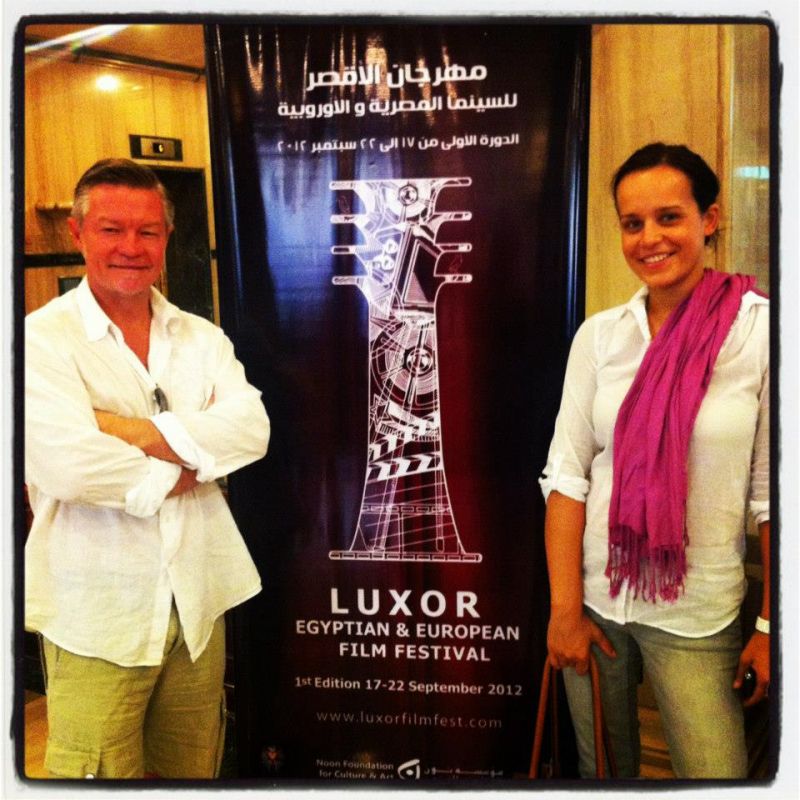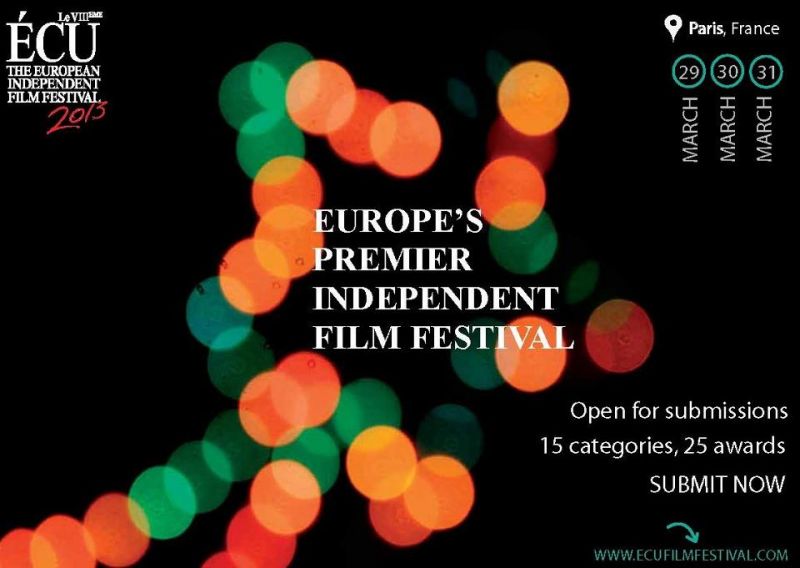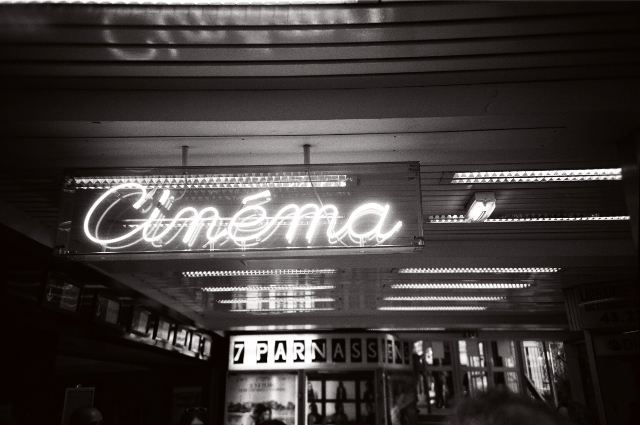|
|
||
|
Pro Tools
FILMFESTIVALS | 24/7 world wide coverageWelcome ! Enjoy the best of both worlds: Film & Festival News, exploring the best of the film festivals community. Launched in 1995, relentlessly connecting films to festivals, documenting and promoting festivals worldwide. Working on an upgrade soon. For collaboration, editorial contributions, or publicity, please send us an email here. User login |
Hungarian Film on the Rise...My father called me a few months ago to tell me “the big news,” the new Hungarian Studios are looking for talented and skilled film professionals. This is my time to leave the western world behind and finally go back home. Ten years ago, when I left Budapest, the only way someone could work in the film industry if they received their diploma from the College for Cinematic and Theater Arts or they had relatives in the field. The College accepted 16 people every three years for the film director track and the same was true for acting, cinematography, editing and similarly for television and theater majors. About seven hundred people applied for each major, some of them already in their forties, trying fifth or sixth time. After three rounds of elimination about 16 remained. The Hungarian film industry changed a great deal since then, as I found out.
The new studios started springing up around the same time when politicians proposed a great tax rebate to film companies shooting in Hungary. The law took effect December, 2004 and gives 20% of all production costs spent in the country back to the filmmakers. The law also takes care of the new studios with a generous 50% tax rebate for the construction of new film facilities in Hungary. All co-productions, Hungarian and foreign film companies benefit greatly from their investment. The foreign film production company, after submitting the Hungarian Film Office their Hungarian budget, has to partner up with a Hungarian company (could be several different investor, but banks receive the most advantageous tax reduction as partners). These Hungarian companies will become “sponsors” without necessarily spending any money but still getting governmental tax breaks while the foreign producers receive the 20%. “It is important to understand that this film law favors co-productions…obviously, the Hungarian film industry and its development is at the heart of it, but international cooperation is also essential,” said the Hungarian Minister of Cultural Heritage, Istvan Hiller. The increase of foreign money flow is vital to the Hungarian film industry, especially since in 2007 they suffered a 30% decrease in government support. Government funding and tax incentives are approved through a new National Film Office and allocated by the Motion Picture Public Foundation of Hungary. New help comes from private companies trying to take advantage of the tax break and investing into Hungarian Films.
Hungary has been the host of many major foreign productions because of its wonderful countryside, the architecture and the old world charm of the streets and buildings of Budapest (Steven Spilberg’s Munchen, Spygame, Evita). It can serve as a low cost substitute for Berlin, Paris, Buenos Aires, London or even medieval locale. The last few years, as shooting in Prague became more and more expensive, Hungarian investors jumped on the opportunity to keep foreign filmmakers in the country for studio shots as well. This is how the Korda Sandor Studio was born 27 km outside of Budapest. Demjan Sandor, a Hungarian property magnate, Andrew Vajna, a successful Hollywood producer and their investing partners (financier Nathaniel Rothschild and Canadian businessman Peter Munk) swung their magic-money-wand over Demjan’s hillside land and created a studio system worth 91 million euros. Demjan started creating his empire during Hungary’s “goulash communist” times (in the 1980s) and developed one successful shopping center after the other as well as invested into several other real estate ventures. His company is still expanding in a number of other countries of the region. Andy Vajna, a 12 year old emigrant of the 1956 revolution, grow up on the west coast and in 1976 partnered up with film sales agent Mario Kassar in creating Carolco Pictures. Their company’s first break was First Blood (grossing $125m in 1982). Since then he produced several other blockbusters, like Terminator 3, Total Recall, Evita and recently a Hungarian big budget about the ’56 revolution, Freedom, Love. Vajna returned to the Hungarian movie industry scene when he realized the potential of the early capitalist Hungary and started working on the idea of the studios with Demjan.
The Korda studio spread out on an 84 acre site with studios on 6500 sq meter (452,000 sq feet) combined. In addition, the world’s largest indoor water tank (21 meter high) for underwater shots with wind and wave machines will be completed by the end of this year. Also in the works, Las Vegas style Resorts, Casinos, Hotels and luxury villas for the privacy and comfort loving celebrities. This is how the Russian military base, full of munitions, bunkers and cold war fears becomes the capitalist Canaan of the Hungarian Movie industry. The free competition is fully blown. Even though, the first Hellboy movie was shot in the Czech Republic, Universal decided to take advantage of the Hungarian tax rebate and lower cost of production. They certainly demanded the same level of speed and professionalism as the Barrandov studios’. The Korda studio had no choice but to respond to the challenge, for Universal’s request the entire opening of the studios was brought ahead by three months for Guiermo Del Toro’s Hellboy II: The Golden Army. It took 500 laborers on triple 24-hour shifts to finish on time. Welcome to the new world, Hungary! “Today is not only a proud day for the owners, management, and staff of Korda Studios after much hard work, but also an important day for the Hungarian film industry. We hope today marks the start of a new era in Hungarian filmmaking, and that in the future local professionals will be able to showcase their talents in more and more international and European productions” said Managing Director and CEO László Krisán about the opening day of the studios and the first day of shooting Hellboy II. “We had dates to hit and Korda was able to do that, which was fantastic, as otherwise we would be shooting in warehouses,” said the satisfied client, executive producer, Chris Symes.
The newest movie on the lot will be Andrej Kouchalovsky’s Nutcracker, a UK-US-Hungarian co-production with the budget of $60-80 million. Every “big catch” like this is celebrated and loudly discussed in the Hungarian media. Robin Hood, a BBC series has been shooting in the original Hungarian Film studios, Mafilm studios. Their newest productions included Eragon and Agnieszka Holland’s Copying Beethoven. Recently, the Los Angeles based Raleigh Studios decided to set up their European base in the Mafilm studio lot planning to buy and revamp this facility.
Another, large studio, possibly targeting a bit lower budget filmmakers then Korda Sandor Film Studios, is Stern Studios. The former textile factory turned film studio is privately owned by Robert Szabados. It is based in Pomaz and opened for business in 2006. Their two soundstages (2200 & 1500 sq meter) recently hosted Eichmann, a UK-German co-production. Their plans include a film school within their facility, in order to have a group of trained professionals at hand for new productions.
While the Hungarian government is actively advertising the tax rebate, often with promotional trips to big American studios, like Disney, Universal and Miramax, the Romanian Studios are not waiting around either. Castel Film Studios, local production company of Cold Mountain, advertises themselves on their website by stating bluntly that they can produce 30-35% below Czech production costs. This is enhanced by the fact that the Romanian government also has a similar tax intensive, then Hungary. Another, deciding factor for the filmmakers is the cost of employing staff. More and more countries are introducing a flat tax rate. In Romania, it is currently 16% and a new competitor, Serbia offers 14%.
Pague certainly has its new challengers. They trust their long established good reputation, even though, president Vaclav Klaus vetoed their cinematography law last year. It was to create tax incentives for foreign filmmakers but his government felt that it did not include a system to support film education and domestic films. Barrandov Studios is pushing ahead with full force to provide quality for the money spent. Their new sound stages were completed in 2006. Three studios that can be used separately or, by lifting the dividing walls, it creates a 4,000 sq meter soundproof, Superstage. This surpasses Italy’s Cinecitt, Europe’s previous largest soundstage. Solely England’s Pinewood Studios’ stage is larger than both, however, it is not soundproof. Barrandov also has a full service laboratory attached to the facility. Some of the movies shot here include Casino Royal, Prince Caspian (Chronicles of Narania II), Oliver Twist, Hellboy, Blade II. They consider England their main competitor in Europe, therefore, they promote themselves with their production costs estimated to be about 25% lower than in United Kingdom, and 40% lower than they would be in the US. According to Norbert Auerbach, an executive consultant to Barrandov, the studio’s strength is in the large number of trained professionals (20,000 people work directly in the Czech film industry according to the Czech Film Commission).
Looking at the palette of central and eastern European studios, it is possible that the competition will not be so bloody after all. All of the countries’ studios offer different prices, overall tax breaks, technical talent and most importantly local scenery for outdoor shots. Foreign films with different genre, budget, resources or talent might have different production needs and in the long run they are certainly saving money just by shooting in the region in general. As for me and my new Hungarian career, I am holding out a bit longer. From the point of view of the Hungarian filmmakers several other questions remain. For example, the cheaper production costs must also mean much lower salaries. Is this a realistic expectation for the future? Is there space for quality independent movies in this money hungry early capitalist environment? In our future newsletter, I start to investigate the situation of young filmmakers and new film schools in Hungary…
21.11.2007 | ÉCU-The European Independent Film Festival's blog Cat. : Andrej Kouchalovsky Andrew G. Vajna Andrew Vajna Andy Vajna Barrandov Barrandov Studios BBC Berlin Budapest Budapest Buenos Aires Business Business Caspian Castel Film Chris Symes Cinema of Hungary Czech Republic Entertainment Entertainment Europe Film Guiermo Hellboy II: The Golden Army Human Interest Human Interest Hungarian government Hungary Hungary Independent film Korda Studios Las Vegas László Krisán London Los Angeles Mario Kassar Movie studio Nathaniel Rothschild Norbert Auerbach Paris Peter Munk Pomaz Prague Prince Raleigh Robert Szabados Romania Romanian government Russian military Serbia Steven Spilberg Technology Technology Toro Total United Kingdom United States Universal Universal Studios Vaclav Klaus
|
LinksThe Bulletin Board > The Bulletin Board Blog Following News Interview with IFTA Chairman (AFM)
Interview with Cannes Marche du Film Director
Filmfestivals.com dailies live coverage from > Live from India
Useful links for the indies: > Big files transfer
+ SUBSCRIBE to the weekly Newsletter Deals+ Special offers and discounts from filmfestivals.com Selected fun offers
> Bonus Casino
User imagesAbout ÉCU-The European Independent Film Festival Hillier Scott Hillier Scott (ECU)
Scott Hillier, Founder and President of ÉCU - The European Independent Film Festival
Scott Hillier is a director, cinematographer, and screenwriter, based in Paris, France. In the last 20 years, Hillier has gained international recognition from his strong and incredible cinematography, editing, writing, producing and directing portfolio in both the television and film industries.
Scott began his career in the television industry in Australia. In 1988, he moved to London getting a job with the BBC who then set him to Baghdad. This opportunity led him to 10 years of traveling around world for the BBC, mainly in war zones like Somalia, Bosnia, Tchetcheynia, Kashmir, and Lebanon. After a near fatal encounter with a Russian bomber in Tchechnyia, Hillier gave up his war coverage and began in a new direction.
He moved to New York City in 1998. He directed and photographed eight one-hour documentaries for National Geographic and The Discovery Channel. Based on his war knowledge and experience, Hillier wrote and directed a short film titled, “Behind the Eyes of War!" The film was awarded “Best Short Dramatic Film” at the New York Independent Film and TV Festival in 1999. From that he served as Supervising Producer and Director for the critically acclaimed CBS 42 part reality series, "The Bravest” in 2002 and wrote and directed a stage play called, "Deadman’s Mai l," which ran at Le Théâtre du Moulin de la Galette in Paris during the summer of 2004. He then became the Director of Photography on a documentary titled, “Twin Towers." This was yet another life changing experience for Hillier. The riveting documentary won an Academy Award for "Best Documentary Short Subject" in 2003. In 2004, Hillier changed continents again, spending three months in Ethiopia. He produced “Worlds Apart,” a pilot for ABC America / True Entertainment / Endemol. As you can see, Hillier was and is always in constant movement and enjoys working in a number of diverse creative areas including documentaries, music videos, commercials, feature and short films.
Scott studied film at New York University and The London Film and Television School. He also studied literary non-fiction writing at Columbia University. Hillier's regular clients include the BBC, Microsoft, ABC, PBS and National Geographic. Between filming assignments, he used to teach film, a Masters Degree course in Screenwriting at the Eicar International Film School in Paris, France and journalism at the Formation des Journalistes Français in Paris, France.
View my profile Send me a message The EditorUser contributionsUser links |





























Comments (1)
Very nice movies!
Very nice movies!